Ever scrolled through your old playlists and thought, “Wow, this song was fire back then… but holy heck, would its lyrics fly in 2025?” We’re living in an age where what was once a smash hit can now spark outrage, confusion, or even downright panic. From misogyny to questionable portrayals of consent and cultural insensitivity, these tracks remind us that time really does change the rules. Grab your headphones and get ready for a wild ride through 17 songs that defined their era yet would probably have us hitting “skip” on Spotify nowadays.
1. Run For Your Life
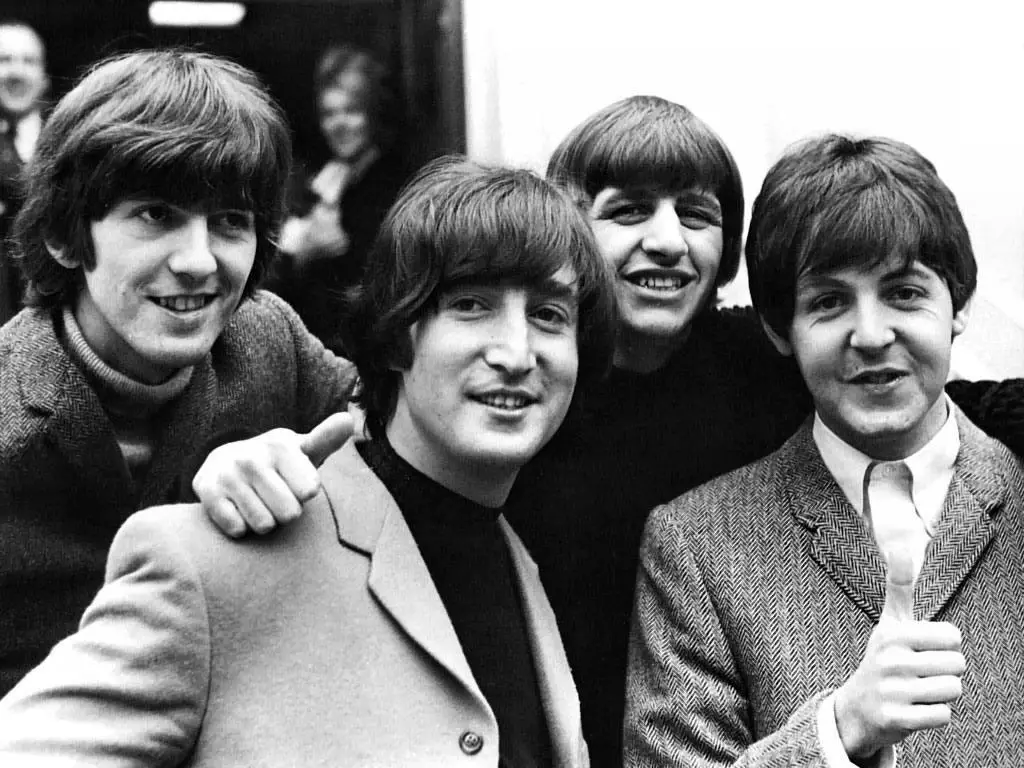
The Beatles’ “Run For Your Life” is a track that, despite its catchy melody, carries a dark undercurrent of possessiveness and violence that would be instantly problematic today. Its lyrics, which include chilling threats of harm if a lover strays, reflect a mindset that modern audiences find deeply disturbing. Even though The Beatles were pioneers of pop, this particular song hasn’t aged well in the era of empowered and respectful relationships. Critics have often noted that the song’s title alone conjures images of a controlling, almost abusive relationship dynamic. An NME article highlighted the discomfort many listeners feel when they reexamine the track’s aggressive tone. It’s hard to imagine such direct and menacing language being embraced by mainstream radio today.
The instrumentation is typical of the band’s early work, full of energy and drive, yet it fails to soften the impact of its aggressive lyrical content. The song’s narrative paints a picture of a relationship where freedom is curtailed and fear is used as a means of control. While the melody might evoke a sense of nostalgia, the underlying message is anything but romantic. In today’s climate of open communication and mutual respect, “Run For Your Life” would be seen as a relic of a time when controlling behavior was often overlooked. Its legacy is a mixed bag, celebrated as part of The Beatles’ catalogue but also critiqued for its troubling themes. It serves as a reminder that even the most legendary acts can have missteps when viewed through the lens of modern values.
2. Blurred Lines

“Blurred Lines” by Robin Thicke was everywhere in 2013, and back then its catchy hook got people dancing despite the heavy criticism. The song’s lyrics blur the lines between flirtation and coercion, making it a lightning rod for debates about consent that would light up social media like wildfire today. Its steamy video and infectious beat mask a problematic underbelly that many now see as glorifying non-consent. I mean, can you imagine this tune dropping without immediate outrage from every feminist blog? According to a detailed review on Rolling Stone, the track is often hailed as one of the worst examples of pop misogyny in recent memory. It’s wild to think a song that once dominated radio playlists might now get canceled faster than a questionable tweet.
The production is slick and radio-friendly, which is exactly why it became such a massive hit despite the controversy. Its lyrics are repetitive and overt, leaving little room for ambiguity—this isn’t subtle art; it’s a straightforward, problematic manifesto. The conversation around the song has only grown in intensity over the years, with critics pointing out that its “no means yes” vibe is not just outdated but downright dangerous. Even fans who loved the beat can’t ignore how its messaging falls flat when held up to modern standards of respect and consent. In a world where boundaries are fiercely defended, “Blurred Lines” would likely be met with swift social media backlash and boycotts. It’s a prime example of how a catchy pop hit can be a ticking time bomb of cultural insensitivity.
3. Baby, It’s Cold Outside
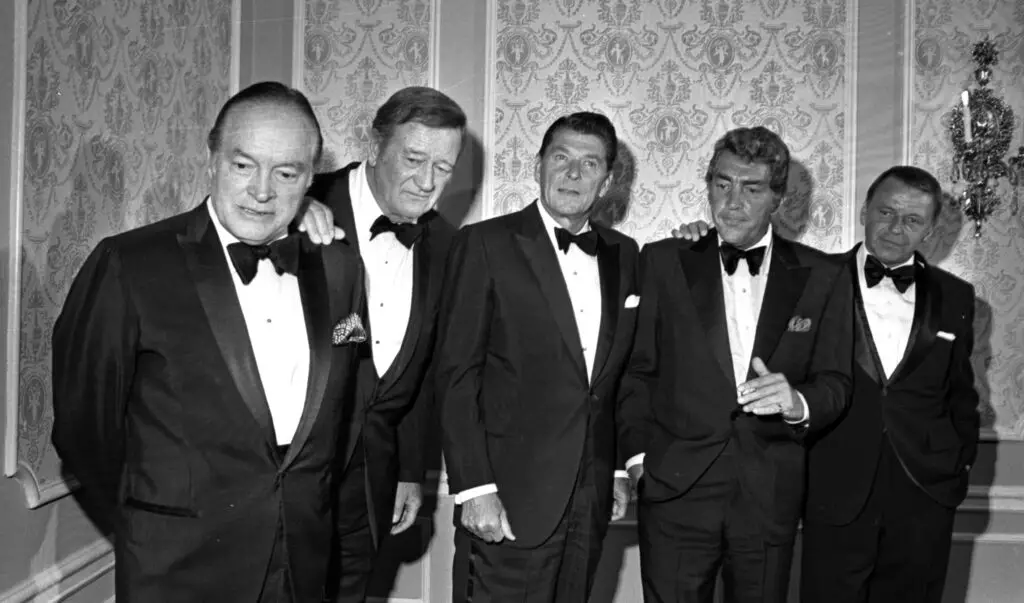
“Baby, It’s Cold Outside” once warmed the hearts of holiday revelers with its playful call-and-response format, but its flirtatious back-and-forth now reads like a problematic script on consent. The song’s seemingly innocuous banter is now dissected for its outdated ideas about pressuring your date and the expectation that a “no” might be ignored. Modern listeners might find its dialogue unsettling, especially given today’s heightened awareness of boundaries and respectful interactions. Critics have pointed out that what was once interpreted as cheeky banter now raises red flags about power dynamics and coercion. An article in The Guardian argues that the song’s lyrics could easily be seen as condoning behavior that we wouldn’t tolerate in real-life relationships today. Its enduring popularity during the holidays now comes with a side of controversy that wasn’t there decades ago.
The musical arrangement is undeniably charming, with a vintage feel that evokes a bygone era of holiday cheer. Yet, when you peel back the festive veneer, you’re left with a script that could be interpreted as minimizing a woman’s right to refuse. The call-and-response structure, while catchy, can also be seen as normalizing persistence even after clear signals of discomfort. The debate over the song reflects how our cultural context has evolved, demanding more explicit consent and mutual respect. Even as many defend it as a classic, others insist that the song’s message would be unacceptable if released in today’s climate. It’s a bittersweet reminder that some holiday traditions might need a remix to fit our modern values.
4. Closer

“Closer” by Nine Inch Nails is a track that revolutionized industrial rock with its pulsating beats and provocative lyrics, yet its explicit adult content would be incredibly controversial if released today. The song’s relentless, hypnotic rhythm and raw, unfiltered lyrics push boundaries in a way that was groundbreaking in the ’90s, but today, the carnality might be viewed as gratuitous and offensive. The track’s title alone suggests an intimacy that is both alluring and disturbing, and its unabashed portrayal of carnal desire leaves little to the imagination. While the song’s production is innovative and its beat undeniably infectious, the explicitness would likely trigger calls for censorship in today’s climate of heightened sensitivity. Back in the day, “Closer” was celebrated for its audacity and its willingness to challenge social taboos, but now its over-the-top explicitness might be seen as crossing the line. The song’s aggressive, industrial soundscape perfectly complements its raw lyrics, creating an atmosphere of controlled chaos that defined an era of boundary-pushing music.
In today’s world, where explicit content is often scrutinized for its potential to offend or alienate, “Closer” would be a lightning rod for controversy. Critics would likely question whether its artistic merits outweigh the potential harm of its graphic imagery. Despite its status as a cult classic, the song’s unabashed explicitness might make it unsuitable for mainstream platforms without heavy editing. The raw energy that once set Nine Inch Nails apart could now be interpreted as reckless and insensitive. Listeners might still appreciate its innovative sound, but many would demand a disclaimer or a reworked version that tones down the explicit language. “Closer” is a prime example of how a song that was once hailed for its revolutionary rawness can become a contentious relic when viewed through the lens of modern cultural standards. It’s a track that continues to inspire debate, reflecting the ongoing tension between artistic freedom and social responsibility.
5. Gold Digger

Kanye West’s “Gold Digger” struck a chord in the mid-2000s with its catchy hook and clever wordplay, but its portrayal of women as materialistic gold-diggers is a narrative that would not fly today. The song’s lyrics, which reduce relationships to financial transactions, reinforce negative stereotypes that many modern listeners find offensive. Its provocative content sparked debates about the objectification of women, making it a lightning rod for discussions on gender and money. A Medium article broke down how the song’s commercial success was undercut by its problematic themes, noting that its lyrics would face intense scrutiny in today’s cultural climate. While the production is undeniably innovative and the beat irresistibly danceable, the lyrical content remains a major sticking point. It’s a track that perfectly encapsulates the collision between chart success and evolving social standards.
The catchy chorus and energetic delivery mask a commentary that many now find simplistic and demeaning. Kanye’s clever rhymes and playful tone, once celebrated as edgy and fun, now seem to rely on outdated notions of gender roles. The song’s narrative, which paints a picture of transactional romance, undermines the complexity of modern relationships. Listeners might find themselves torn between nostalgic appreciation for a hit and discomfort with its objectifying language. Despite its success on the charts, “Gold Digger” is a prime example of how a song can be both a commercial triumph and a cultural misstep. It highlights the inevitable clash between artistic expression and the evolving demands for social responsibility.
6. I Kissed a Girl

Katy Perry’s breakout hit “I Kissed a Girl” turned heads and sparked conversations when it first hit the airwaves, but its playful treatment of same-gender attraction might be seen as reductive today. The song’s catchy pop beat and cheeky lyrics made it a summer anthem, yet modern audiences now critique it for trivializing and reducing complex identities to a novelty. The track’s provocative nature was part of its charm at the time, but in today’s context, its simplistic portrayal might come off as tone-deaf. Its lyrics, while fun and flirty, don’t offer a nuanced take on fluidity and instead lean into a one-dimensional stereotype. The song’s cultural impact is undeniable, as it opened doors for mainstream conversations about attraction—even if it did so clumsily. Many millennials now look back on it with a mix of nostalgia and critical distance, acknowledging its role in pop history while recognizing its limitations.
The production is slick and radio-friendly, with a hook that still makes you want to dance despite everything. Perry’s playful vocals and cheeky attitude embody the carefree spirit of early-2000s pop, but those same qualities might not hold up under today’s standards of representation. The track’s narrative flirts with experimentation without really diving into the complexities of identity. It’s a relic of a time when pop music could be both bold and shallow at once. “I Kissed a Girl” remains a memorable moment in pop history—even if its approach would need a major update for modern sensibilities.
7. Under My Thumb
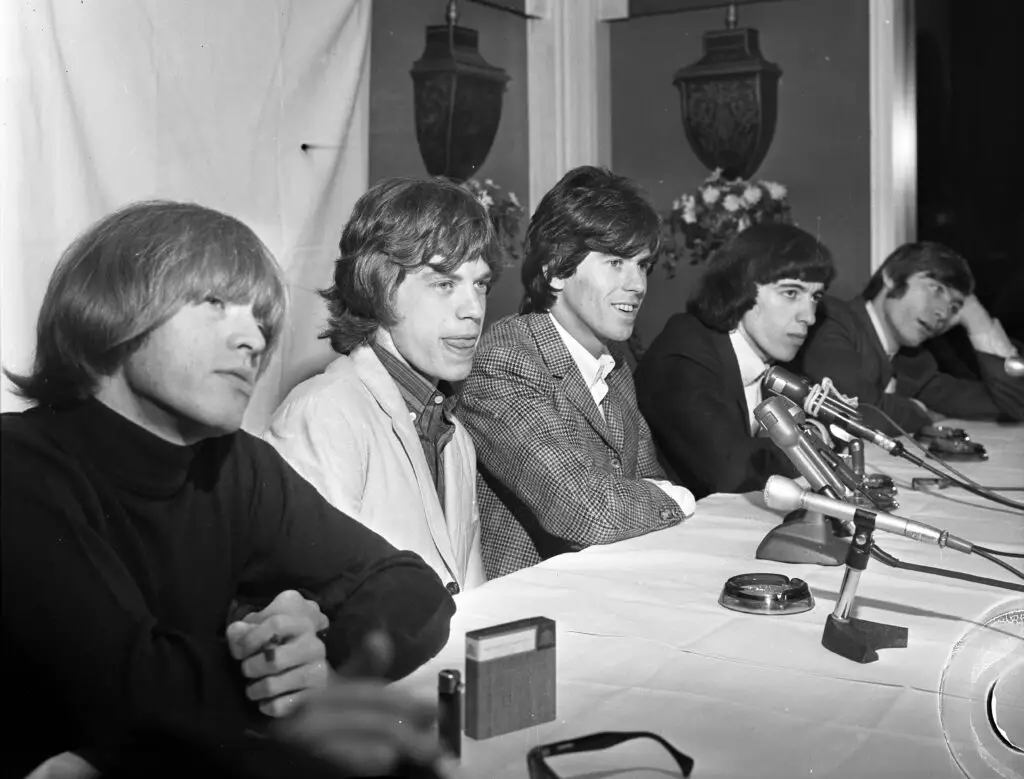
“Under My Thumb” by The Rolling Stones is a classic that once resonated with rebellious rock fans, but its lyrics—dealing with control and domination over a woman—would face immediate backlash if released today. The song’s portrayal of a subservient partner, though packaged in a catchy groove, reinforces outdated attitudes that are simply unacceptable now. Its hypnotic riff and laid-back vibe might still get heads bobbing, but the message underneath is a stark reminder of a time when misogyny was brushed off as edgy rock ‘n’ roll. The narrative of the song suggests a power imbalance that modern audiences, who demand equality and respect, would find deeply troubling. Over the decades, critics have reexamined the track and questioned its celebration of domination. While it remains a part of rock history, its lyrical content would likely trigger widespread condemnation in today’s climate.
The instrumentation is undeniably classic, with a timeless quality that captures the raw energy of the Stones. Yet, the lyrics—replete with commands and control—have not aged well and would be subject to fierce criticism on social media platforms. What was once considered a bold statement of rock attitude now seems regressive and harmful. Listeners might find themselves conflicted by the song’s musical brilliance and its problematic message. In the era of #MeToo and heightened sensitivity to gender issues, “Under My Thumb” would need a serious lyrical overhaul to be palatable. It stands as a relic of its time, a reminder of how far rock music has come—and how far it still has to go.
8. Pumped Up Kicks

“Pumped Up Kicks” by Foster the People became a massive hit with its infectious indie pop beat and catchy chorus, but its dark subject matter lurks beneath the surface. On the surface, the song’s mellow vibe and upbeat rhythm make it a radio staple, yet the lyrics detail a disturbing narrative about youth violence and school shootings. This juxtaposition between a toe-tapping tune and its grim lyrical content creates an uneasy feeling that would likely provoke significant controversy if the song were released today. The track’s ambiguous storytelling once allowed listeners to focus on its groove, but now its narrative of troubled youth and violence is too raw to ignore. Critics have long debated whether the song’s catchiness masks a more sinister message, and in our current climate of heightened sensitivity to issues of gun violence, it’s a topic that would ignite fierce debate. The irony of a hit song with such a dark theme underscores the complexities of pop culture, where surface-level appeal can obscure deeper, problematic issues.
Today, “Pumped Up Kicks” would likely be accompanied by extensive content warnings and possibly even be pulled from major radio playlists in light of its subject matter. The contrast between the bubbly instrumentation and the violent narrative would make headlines for all the wrong reasons. Listeners might find themselves torn between nostalgia for the song’s undeniable earworm quality and discomfort with its underlying message. The song’s success in the mid-2000s hinged on its ability to be interpreted in multiple ways, but in an era where the impact of mass shootings is a daily headline, its lyrics would not be taken lightly. “Pumped Up Kicks” is a clear reminder of how context matters, and how a song’s reception can change dramatically as societal issues evolve. Its legacy as a hit now comes with a caveat—a cautionary tale about the fine line between catchy and concerning.
9. Picture to Burn

Taylor Swift’s “Picture to Burn” was a fiery anthem for heartbroken teens, but its use of the word “gay” as an insult is a glaring misstep in today’s era of inclusivity and sensitivity. The track’s catchy, pop-punk energy once made it a go-to breakup song, yet modern audiences now critique it for using derogatory language in a way that reinforces harmful stereotypes. Swift’s lyrics, which were intended to capture the raw emotion of a breakup, inadvertently perpetuate a casual homophobia that would be unacceptable in a current hit single. It’s a song that might have been seen as edgy in 2008 but now feels like a relic of a less enlightened time. Critics and fans alike have revisited its lyrics with a critical eye, questioning why such language was ever normalized. The controversy over its wording is a reminder that even well-intentioned pop can have serious flaws when viewed through today’s progressive lens.
The song’s upbeat melody and spirited vocals still have the power to energize a crowd, yet its lyrical content would now prompt immediate apologies and revisions. Swift has evolved considerably as an artist, and many now see “Picture to Burn” as a snapshot of her earlier, more flawed self. Its success on the charts contrasts sharply with how its message would be received in today’s climate of strict social accountability. What was once a cathartic expression of teen angst would now be subject to heated debates over language and representation. The track is a testament to the growing awareness and shifting standards in pop culture. It shows how even chart-toppers must adapt to changing times and evolving expectations of respect and inclusivity.
10. My Humps

“My Humps” by the Black Eyed Peas dominated radio waves with its infectious beat and quirky lyrics, yet its objectification of women and reduction of female bodies to a commodity would spark a storm of criticism today. The song’s playful repetition and danceable rhythm once masked its controversial message, but modern audiences are much savvier about issues of body image and objectification. Its lyrics, which focus obsessively on physical attributes, reduce women to nothing more than a collection of body parts, a notion that modern feminism would vehemently reject. Critics have long debated whether its silliness is intentional or simply a byproduct of lazy lyricism, but either way, it would be unacceptable in an era that demands empowerment and respect. The track’s commercial success is undeniable, yet its content now stands out as a glaring example of chauvinism. What once passed as fun pop now seems tone-deaf and demeaning in today’s context.
The production of “My Humps” is undeniably catchy, with a beat that makes you want to move no matter how hard you try not to. Yet beneath the groove lies a message that reduces complex human relationships to shallow physicality. Listeners who grew up with this track might now feel conflicted, remembering the catchy hook while questioning the lyrics. Its impact on pop culture is significant, but so is its problematic nature when scrutinized under modern social standards. The song highlights how much pop music has evolved—and how much more mindful we are of the messages we send. “My Humps” remains a nostalgic hit that would need a complete lyrical overhaul if it were to be reintroduced today.
11. Every Breath You Take
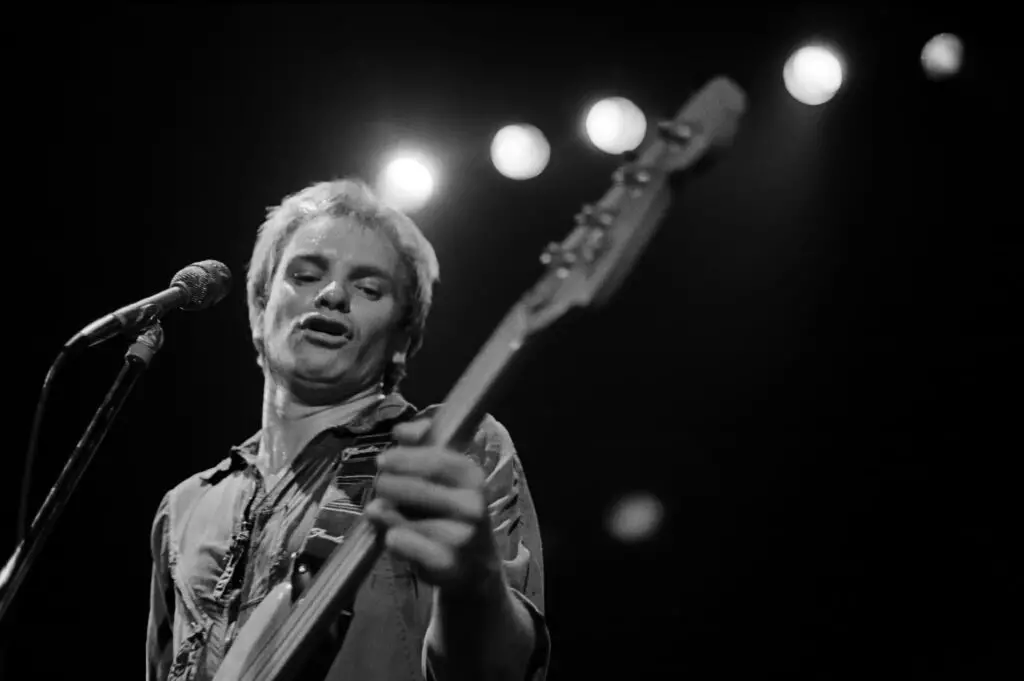
The Police’s “Every Breath You Take” is often mistaken for a love song, yet its lyrics reveal a dark obsession that borders on stalking—a theme that would be deeply unsettling if released today. The song’s hypnotic melody contrasts sharply with its lyrics, which detail a level of surveillance and possessiveness that modern audiences recognize as creepy. Its famous refrain, when taken literally, describes an intrusive monitoring of another person’s every move, a notion that is at odds with today’s emphasis on personal privacy and mutual respect. Critics have reexamined the track over the decades, noting that its romantic veneer masks a disturbing narrative of control. The song’s legacy is complex: it’s a timeless hit musically, but its lyrical content has aged poorly in light of contemporary values. As conversations around stalking and personal autonomy grow louder, “Every Breath You Take” would face immediate backlash for its implications.
Musically, the track is a masterpiece of arrangement and melody that continues to resonate with listeners, even if its message is problematic. Its gentle instrumentation and soothing vocals create an ironic juxtaposition with the controlling nature of the words. The song remains a staple of classic rock radio, yet if it were introduced in today’s market, its lyrics would likely trigger an avalanche of criticism online. Fans may still appreciate its musicality, but they would have to confront the fact that its narrative is rooted in behavior that is now rightly condemned. It serves as a reminder that even the most beloved classics can harbor messages that are incompatible with modern ethics. “Every Breath You Take” is a perfect case study in how context and cultural shifts can completely alter the interpretation of a hit song.
12. Love the Way You Lie
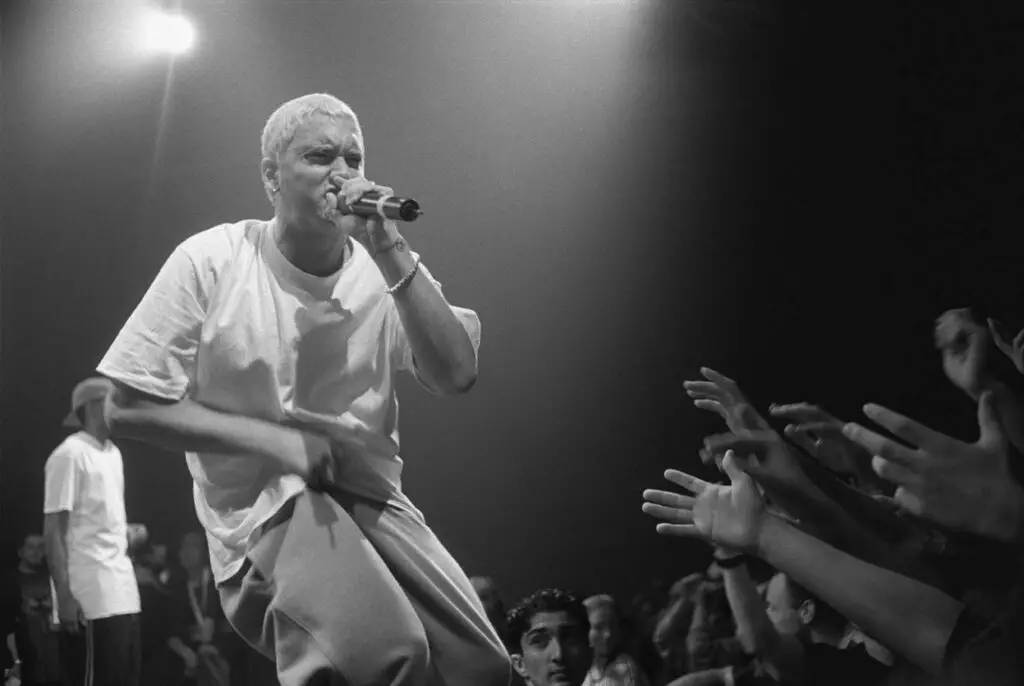
Eminem’s “Love the Way You Lie,” featuring Rihanna, struck a chord with audiences for its raw depiction of turbulent relationships, but its vivid portrayal of domestic violence would be highly contentious if dropped today. The track’s intense lyrics and dramatic production painted a picture of love intertwined with abuse—a reality many find too close to home in today’s society. Its narrative, which oscillates between passion and pain, has sparked debates on whether art should reflect harsh realities or be held accountable for glorifying them. In the age of #MeToo, such explicit portrayals of violent relationships would undoubtedly face fierce scrutiny and calls for revision. The song’s powerful delivery and unforgettable chorus helped it become a chart-topping hit, but those same elements now serve as a reminder of the problematic glorification of abuse. Critics argue that while the song attempts to capture the complexity of toxic love, it also risks normalizing behavior that is both dangerous and unacceptable.
The collaboration between Eminem and Rihanna created a dynamic contrast of voices that brought raw emotion to the forefront of the narrative. However, the lyrics, which describe a cycle of abuse with a disturbing level of detail, are likely to be met with protest in today’s climate. Listeners today are much more sensitive to messages that could be seen as condoning domestic violence, even if the intention was to shed light on the issue. The song’s impact is undeniable, yet its legacy is tainted by the very subject it tries to explore. It forces us to question whether art that depicts violence can ever be truly separated from the consequences of that violence. “Love the Way You Lie” remains a powerful but polarizing example of how music can both reflect and influence social attitudes.
13. Ain’t No Fun (If the Homies Can’t Have None)

Snoop Dogg’s “Ain’t No Fun (If the Homies Can’t Have None)” is a quintessential West Coast party anthem that revels in crude humor and explicit content, but its blatant objectification and dehumanizing portrayal of women would be highly problematic today. The track’s playful bragging and casual misogyny were once seen as a humorous exaggeration of street culture, yet modern audiences are far less tolerant of language that reduces women to mere objects for pleasure. Its lyrics, delivered with Snoop’s signature laid-back flow, dismiss any notion of respect or consent, a stance that would be indefensible in today’s music scene. What was once brushed off as humorous bravado now sparks serious debates about misogyny in hip-hop. Critics have reexamined its content and argue that such language contributes to a culture that normalizes exploitation. The song’s provocative nature makes it a textbook case of how humor and explicitness can easily tip over into harmful territory.
Musically, the track is infectious, with a beat that compels you to nod along despite its controversial message. Snoop Dogg’s smooth delivery and the song’s laid-back production create a stark contrast to the abrasive nature of its lyrics. However, the content itself, which explicitly objectifies women, would be met with immediate condemnation in an era that prioritizes gender equality and respect. The song is emblematic of a past where shock value was a ticket to radio play, but those days are over. Its legacy in hip-hop is undeniable, yet its lyrical content would be unthinkable under today’s standards. “Ain’t No Fun” stands as a relic of a time when explicit objectification was the norm, not the exception.
14. One in a Million
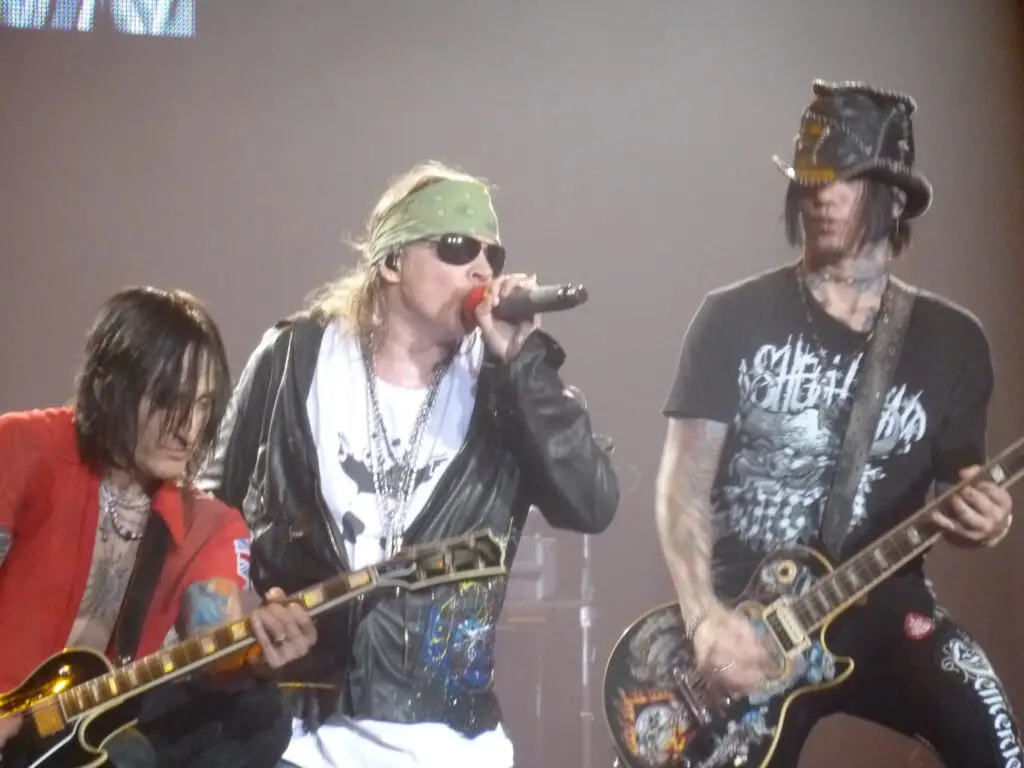
Guns N’ Roses’ “One in a Million” is infamous for its blatantly racist, homophobic, and xenophobic lyrics that shocked even the most hardened rock fans, and there’s no doubt it would be met with universal outrage if released now. The song’s offensive language and derogatory slurs are a stark reminder of a period when such sentiments were pushed to the forefront as a rebellious statement. Its lyrics not only demean entire communities but also promote harmful stereotypes that modern audiences rightly reject. The track’s aggressive tone and inflammatory content have made it a lightning rod for criticism over the years. In today’s climate, where social justice and inclusivity are non-negotiable, “One in a Million” would almost certainly be pulled from the airwaves and streaming platforms. It’s a song whose notoriety is built on language and themes that simply have no place in modern music.
The musical composition is aggressive and defiant, matching the intensity of its lyrics, but that very intensity is what makes its content so unacceptable now. Guns N’ Roses once used the track to push boundaries, but those boundaries have shifted dramatically over time. Listeners would be unlikely to tolerate the kind of hate speech embedded in the lyrics, and the song would likely trigger boycotts and legal challenges. Its release today would be a public relations nightmare for any record label. The track serves as a harsh reminder of how rock music’s past glories can be tarnished by outdated and harmful ideologies. “One in a Million” is a cautionary tale of what happens when provocative art fails to evolve with society.
15. Born in the U.S.A.

Bruce Springsteen’s “Born in the U.S.A.” is a misunderstood anthem that, despite its rousing chorus, carries a bitter critique of American society and the treatment of Vietnam veterans. Its patriotic-sounding title masks the song’s biting commentary on the struggles faced by working-class Americans, often leading to misinterpretation. The song’s catchy refrain has been co-opted as a rallying cry for blind patriotism, ignoring the critical messages embedded in the verses. The song paints a picture of disillusionment and neglect, challenging the notion that being born in America guarantees prosperity or respect. Springsteen’s gritty vocals deliver a raw, unapologetic portrayal of hardship and systemic failure that resonates with those who feel left behind. While many still sing along to its infectious melody, the underlying critique remains a stark commentary on national neglect that would be even more incendiary today. Its dual nature—both a hit and a protest—makes it a fascinating study in how art can be both embraced and misinterpreted.
Back in its day, “Born in the U.S.A.” was hailed as an anthem of American pride, even as its lyrics offered a scathing indictment of governmental policies and social injustice. The song’s juxtaposition of uplifting music and somber lyrics forces listeners to dig deeper than the surface. Its impact lies in the way it challenges the listener to reconcile the joy of the chorus with the pain of its verses. Springsteen’s storytelling captures the complexity of the American experience in a way that remains relevant despite decades of change. The track’s misinterpretation over the years reveals how easily powerful messages can be obscured by catchy hooks. Modern audiences, now more politically aware, might appreciate its deeper meaning rather than simply chanting along. “Born in the U.S.A.” serves as a timeless reminder that not everything that sounds patriotic is without criticism.
16. Jeremy

“Jeremy” by Pearl Jam is a haunting narrative that captures the tragedy of a troubled youth, inspired by a real-life incident that left a lasting impact on society. The song’s simple title belies a deep and disturbing story about bullying, isolation, and the explosive consequences of neglect. Its melancholic melody and poignant lyrics paint a vivid picture of a young life pushed to the edge, sparking conversations about mental health and the impact of social alienation. Though its title is innocuous, the content of “Jeremy” forces us to confront uncomfortable truths about the failures of our educational and social systems. The narrative is delivered with raw emotion, making it both an empathetic portrayal of despair and a cautionary tale for society. Even without using explicit language, the song’s subject matter remains challenging and thought-provoking, resonating with listeners who have experienced similar feelings of isolation. “Jeremy” stands as a powerful example of how music can shine a light on societal issues without resorting to shock value in its title.
Back in its early days, “Jeremy” was both critically acclaimed and widely discussed for its unflinching look at the darker sides of youth culture. Its storytelling approach was revolutionary, combining evocative lyrics with an unforgettable melody that captured the tragedy of its subject. The song forced a conversation about the responsibility of communities and institutions to support vulnerable individuals. Today, it remains a timeless piece that continues to spark dialogue on mental health and the consequences of neglect. While its narrative is heartbreaking, the song’s subtle delivery and poignant instrumentation make it a haunting masterpiece. “Jeremy” serves as a reminder that sometimes the most powerful messages come from the simplest titles. It encapsulates the potential of music to both move us and challenge us to think about the world differently.
17. Walk on the Wild Side
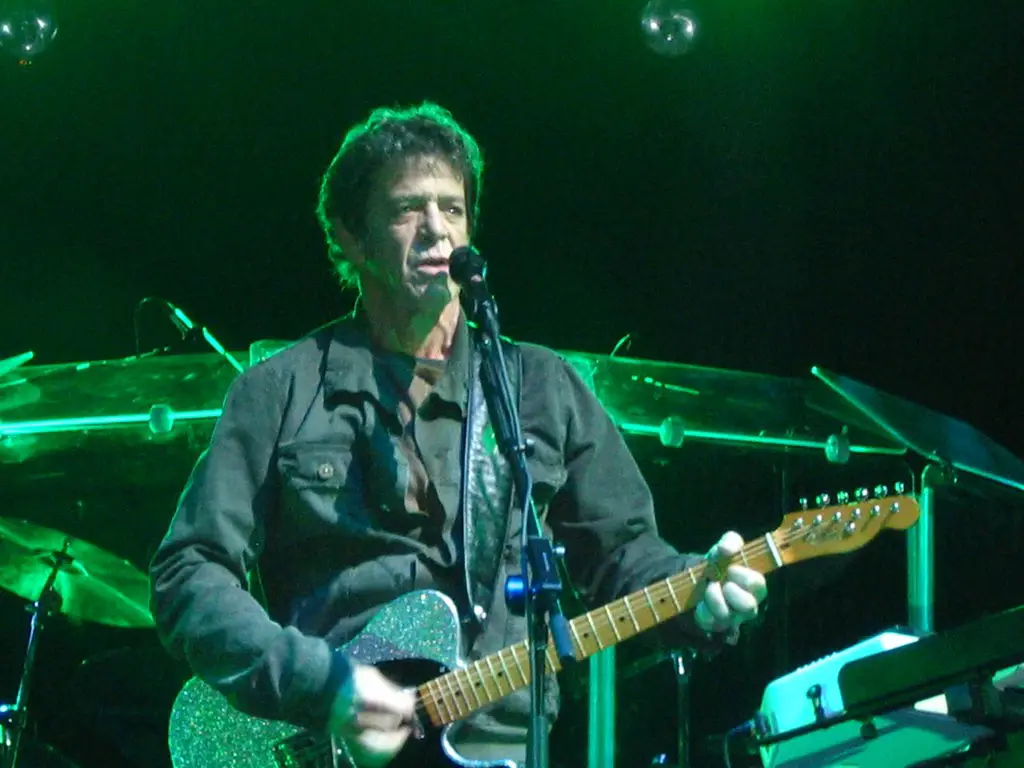
Lou Reed’s “Walk on the Wild Side” was once celebrated as a groundbreaking anthem for New York’s counterculture, but these days its portrayal of gender nonconformity and trans identities feels a bit problematic. The song’s smooth, laid-back groove contrasts sharply with lyrics that, while revolutionary for their time, can now come off as objectifying and overly stereotypical. The narrative paints vivid characters from the fringes of society, yet the simplistic portrayal of these individuals would likely spark heated debates if released in its original form now. Reed’s delivery is cool and nonchalant, lending a mesmerizing quality to the track that almost distracts from its controversial content. Even as fans laud the song as a classic, many recognize that its lyrical choices would need a modern update to be fully acceptable in today’s more sensitive cultural climate.
Back then, the song broke barriers by spotlighting marginalized voices in a time when they were rarely heard in mainstream music. Its raw depiction of unconventional lifestyles helped pave the way for future discussions about LGBTQIA+ identities. However, modern critics argue that the song’s portrayal often reduces complex identities to quirky caricatures rather than celebrating their full humanity. While its distinctive bassline and seductive melody remain iconic, the inherent issues in its narrative remind us how much cultural perspectives can shift over time. Today, listeners demand a more respectful and multifaceted representation of the subjects Lou Reed once brought into the spotlight. “Walk on the Wild Side” now stands as both a timeless musical achievement and a conversation starter about the evolution of social attitudes. It’s a powerful reminder that even art which once pushed boundaries can become a source of controversy as our collective understanding grows.
